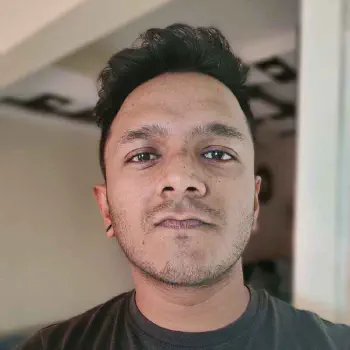
🌈 Anurag Nair (He/Him)
Replies in 48 working hours (2 days).Accepts Participants via Email.
Anurag (He/Him) is a 33 year old mental health therapist from Bengaluru. They practice online. They identify as 🌈 Gay.
For Anurag Nair's contact details, click on the 'Reach Out' button on this page. Anurag Nair's email address and their website , will be emailed to you from our platform. Anurag Nair will be cc'd in that email, allowing you to reach out to them directly.
You can also check out our Custom GPT available on ChatGPT.com. And ask questions about our platform on https://chatgpt.com/g/g-685b8202f32c81919d9267a919a3c9cd.
For more questions, you can view https://themindclan.com/terms-of-service, and https://themindclan.com/faqs
FAQ
-
Concerns & people they work with:
- Mostly, I work in areas of anxiety, depression, stress management, identity and self development, interpersonal relationships, and gender and sexuality concerns. I intend on learning to work with trauma in the future.
- I work with a general population between the ages of 18 and 40.
You may clarify the above details with them directly. Get to know them 👇 - Mostly, I work in areas of anxiety, depression, stress management, identity and self development, interpersonal relationships, and gender and sexuality concerns. I intend on learning to work with trauma in the future.
Key Details
Anurag is part of our handpicked list of therapists 🤗
Carefully curated
Peer-referred
Reach out directly. No Gatekeeping.

